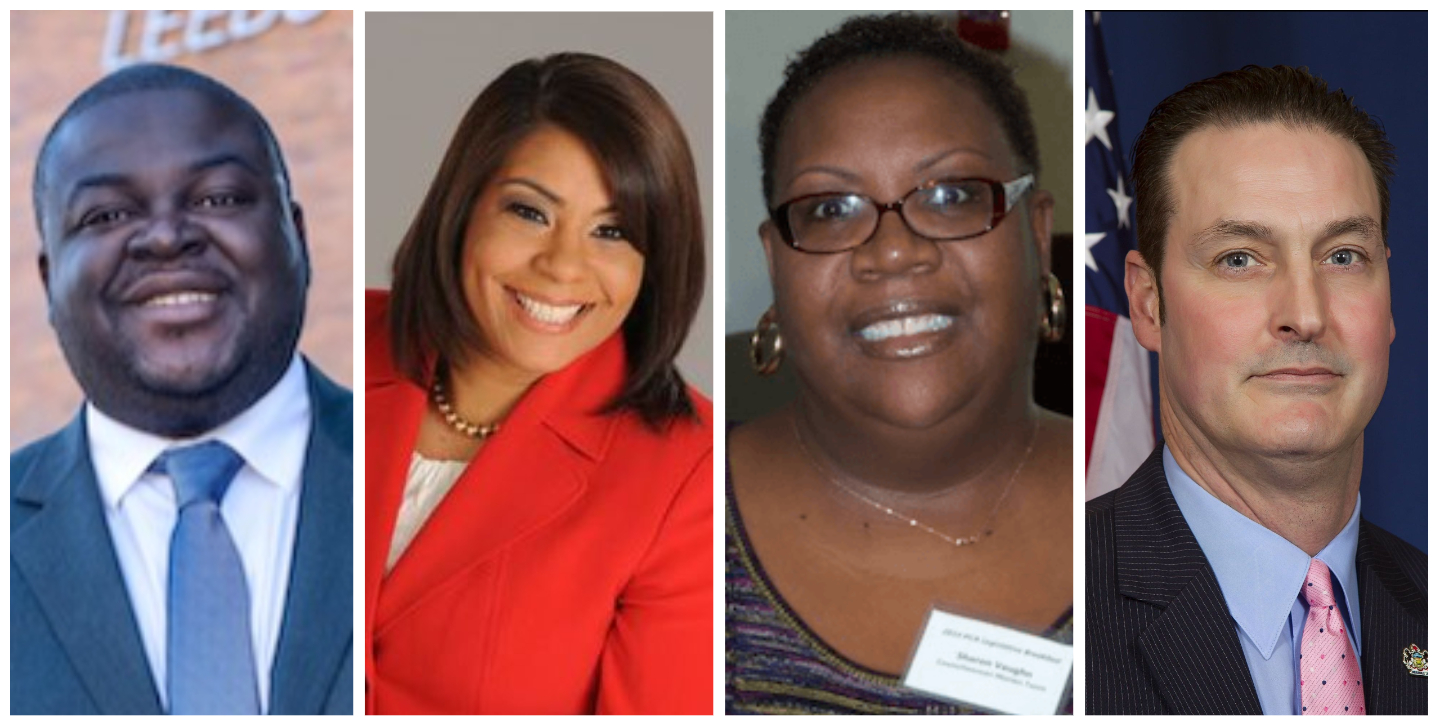In the November 8 midterm elections, Philadelphia voters elected four newcomers to Philadelphia City Council. Quetcy Lozada, Anthony Phillips, Jimmy Harrity and Sharon Vaughn will replace the four Councilmembers who had to resign in order to run for mayor of Philadelphia.
On November 28, the seats vacated by Allan Domb, Derek Green, Cherelle Parker and Maria Quiñones-Sánchez will be refilled. Who are Vaughn, Harrity, Phillips and Lozada? Who will they represent? What do they care about?
Read on to find out.
- Anthony Phillips, 9th District
- Quetcy Lozada, 7th District
- Sharon Vaughn, At-Large
- Jimmy Harrity, At-Large
![]()
Anthony Phillips, 9th District (replacing Cherelle Parker)
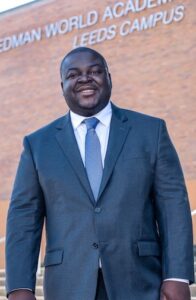
Anthony Phillips grew up in working-class Philadelphia and is the Vice Chair of the 50th Ward. Phillips is a Ph.D. student at the University of Massachusetts Amherst, recipient of a Master’s from Yale University, and an undergraduate degree from Bates College. Before winning the special election, he served as executive director and co-founder of Youth Action — a program connecting Philly’s middle and high school students to service opportunities to inspire socially responsible leadership. Phillips also directed precollege programs at TeenSHARP, an organization that opens doors for minority youth to achieve scholarships and gain admission to selective universities.
1. What are Philly’s most pressing issues?
Crime. Hope. And a spirit that says we can get this done. We have to restore hope at every level in this town. We have to stop acting like many of these problems are not chronic and bedeviling issues for generations. Hope compels us to clean streets and to have high expectations of ourselves and our neighbors. Hope encourages teachers to teach differently, parents to send their children to school prepared to learn and students ready to be in place and to suck up all that their education and life have to offer! We need hope and real solutions!
2. What are the biggest barriers to making progress on these issues?
The greatest barrier to what we want to accomplish is low expectations. Our challenges are great to fulfill the massive potential of Philadelphia. And if we don’t believe in ourselves or our innate capacity to accomplish these things, we will never get to where we belong. Philly needs a renewed sense of destiny.
3. What legislation are you hoping to pass in the first two years of your first term?
A budget that reflects our needs and reality. A disciplined, yet imaginative budget that speaks to strategic priorities of a post-pandemic, pre-renaissance Philly. Budgets matter. Priorities matter. And investments in what we know works will be hallmarks of my service to my district and the city.
4. Why and how should Philadelphians pay attention to local politics?
Elections have consequences. Democracy and elections are a temperature check on the health of our republic. Too few people vote in Philly. As elected officials, we need to do more to inspire people — our neighbors. Instead of winning elections solely, we have to start winning the hearts and minds of people. When we move their hearts, we will move their ballots. When our neighbors are engaged, they demand more systems. That will make us better. And eventually we will be a stronger city because of this!
5. Who’s your political hero?
David P. Richardson because he was accessible, created transformative initiatives, and understood that his chief title was not State Rep., instead, it was servant. Roxanne Jones because she cared about working-class families and created policies that mattered to working-class people. And former Councilmember Cherelle Parker, she taught me the importance of championing middle neighborhoods.
How to Contact Anthony Phillips:
Anthony Phillips on Facebook.
Anthony Phillips on Instagram.
Anthony Phillips on Twitter.
 Quetcy Lozada, 7th District (replacing Maria Quiñones-Sánchez)
Quetcy Lozada, 7th District (replacing Maria Quiñones-Sánchez)
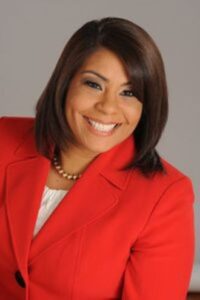
Quetcy Lozada served from 2008 to 2018 as former 7th District Councilmember Maria Quiñones-Sánchez’s chief of staff. She’s a Philadelphia native, Northwood resident, mother of two, and vice president of community engagement and organizing for the Hunting Park Christian service group Esperanza. She also served on the Pennsylvania Commission of Latino Affairs and worked for the Council of Spanish Speaking Organizations (Concilio) and the Philadelphia Convention & Visitors Bureau. Her community service includes collecting and distributing hundreds of Thanksgiving baskets for families in need, a LIHEAP drive to assist Spanish-speaking residents in completing applications for utility bill assistance, a citywide winter coat drive, and public clean-ups.
1. What are Philly’s most pressing issues?
Gun violence is one of Philly’s most pressing issues, but in the 7th Council District, we are also dealing with open-air narcotics wars and being the epicenter of the opioid crisis — all of which are deteriorating residents’ quality of life.
2. What are the biggest barriers to making progress on these issues?
Some of the barriers that prevent us from making progress on these issues are lack of investment in marginalized communities as well as government’s unwillingness to enforce and hold people accountable for unlawful behavior. Creating strategies that include community participation is one of government’s biggest challenges.
3. What legislation are you hoping to pass in the first two years of your first term?
In my first 14 months, I would like to work on legislation that would improve residents’ quality of life and end the blatant use of opioids in the 7th District without accountability.
4. Why and how should Philadelphians pay attention to local politics?
Local politics has a direct impact on quality of life; these are the elected offices they can walk directly into for support and change. So, in essence, they are the most important elections.
5. Who’s your political hero?
I was brought into Philly’s political environment by former Councilmember Maria Quiñones-Sánchez. Everything I have learned about government, how it functions and how it impacts community residents, I learned from her.
How to Contact Quetcy Lozada:
Quetcy Lozada on Facebook.
Quetcy Lozada on Instagram.
Quetcy Lozada on Twitter.
Sharon Vaughn, At-Large (replacing Derek Green)
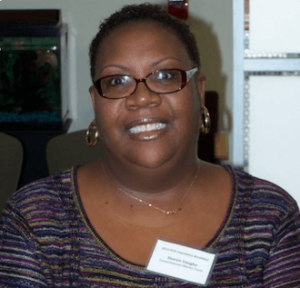
Sharon Vaughn, a Feltonville resident, is the Democratic leader of the 42nd Ward and the former chief of staff of At-Large Councilmember Derek Green, who resigned to run for mayor. Over the course of her 30-year career in city government, she has worked for other former Councilmembers, including Marian Tasco and the late Augusta “Gussie” Clark. Vaughn has said she would work to prevent gun violence by seeking those who’ve committed crimes and offering them “some type of resources to maybe prevent them from going out there and being violent criminals,” which she told the Inquirer.
1. What are Philly’s most pressing issues?
I would say Philadelphia’s most pressing issues, aside from economic pressures related to inflation and the pandemic, are gun violence and poverty.
2. What are the biggest barriers to making progress on these issues?
Our biggest barriers to making progress on these issues — particularly with respect to crime — is too much finger-pointing and too little problem-solving. So much more progress can be made by taking time to really hear from and engage with our youth (meeting them where they are in their lives), who oftentimes are the ones directly impacted by the levels of deep poverty in our city and lack of access to resources. With regard to poverty, the biggest challenge we have is providing equal opportunities for our small, minority-owned businesses to grow — which generates jobs, wealth, and nurtures our communities from within.
3. What legislation are you hoping to pass in the first two years of your first term?
While I have not yet narrowed down specific legislation I want to enact this upcoming year, I am interested in exploring our mail-in voting system a bit further to see how Philadelphia can better accommodate and uphold the voting rights of those under long-term care or hospitalized for extended periods of time, who may not have been able to participate in elections as a result.
4. Why and how should Philadelphians pay attention to local politics?
Philadelphians — particularly those approaching 18 — must give the same energy to local politics and voting as they do to the latest TikTok challenge or updating their stories and reels on Instagram. Those who are my age are voting to ensure the future looks bright for their generation and those who will follow them. From reproductive rights and equitable health care to a more sustainable environment and safe, higher-quality schools: These are issues that affect us all but especially the younger generations. If you’d rather not watch TV news, check to see what the news outlets are saying on your Facebook news feed before you update your status. Our people must stay engaged, informed, and empowered!
5. Who’s your political hero?
My political hero is the woman who gave me my start in city government, the late and honorable Councilmember Augusta “Gussie” Clark.
How to Contact Sharon Vaughn:
Sharon Vaughn on Facebook.
Sharon Vaughn on Instagram.
Jimmy Harrity, At-Large (replacing Allan Domb)
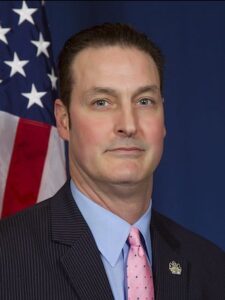 A native of Southwest Philadelphia, Jimmy Harrity received his GED from the Community College of Philadelphia, operated the Famous Cookie stall at the Bellevue, was an investigator under City Controller Jonathan Saidel, worked union construction, and struggled with alcoholism. After getting sober, he became the executive director of the Office of State Senator Sharif Street and political director of the Philadelphia Democratic Party — right-hand to Party Chairman and former Congressman Bob Brady. Harrity also recently became the political director of the Pennsylvania Democratic Party under Party Chairman Senator Sharif Street. He serves on the board of One Day at a Time, an addiction nonprofit, and believes in educational equity’s power to create social mobility.
A native of Southwest Philadelphia, Jimmy Harrity received his GED from the Community College of Philadelphia, operated the Famous Cookie stall at the Bellevue, was an investigator under City Controller Jonathan Saidel, worked union construction, and struggled with alcoholism. After getting sober, he became the executive director of the Office of State Senator Sharif Street and political director of the Philadelphia Democratic Party — right-hand to Party Chairman and former Congressman Bob Brady. Harrity also recently became the political director of the Pennsylvania Democratic Party under Party Chairman Senator Sharif Street. He serves on the board of One Day at a Time, an addiction nonprofit, and believes in educational equity’s power to create social mobility.
1. What are Philly’s most pressing issues?
The gun violence epidemic and the lack of support for resources for education and job training. These two issues go hand-in-hand, with the increase in gun violence connected to a lack of social mobility from underfunded schools and training programs. Ideally, Council should prioritize building new school buildings or fund the repair of aging school buildings with asbestos and lead paint.
2. What are the biggest barriers to making progress on these issues?
The legal inability for Philadelphia to pass its own gun laws and crack down on straw purchases and ghost guns — and the reliance on state-level politicians to fund our School District. Council can, however, prioritize funding in its budget to increase funding for educational and community programming which includes conflict resolution, job training, and other evidence-based community centered programs.
3. What legislation are you hoping to pass in the first two years of your first term?
My first priority is to expand the amount of Real Time Crime Center cameras in high crime areas to ensure that law enforcement are able to arrest and prosecute violent offenders. I am also focused on legislation which would address education, employment, and homelessness.
4. Why and how should Philadelphians pay attention to local politics?
Local politics have the most impact on a city’s quality of life. How a city becomes a desirable place to live is tied to a local government’s policy initiatives, and politicians will only care about these initiatives if informed Philadelphians participate in the local political process.
5. Who’s your political hero?
My political hero is former Councilmember Jannie Blackwell because of her dedication to standing up for all those in need, especially the homeless community.
How to Contact Jimmy Harrity:
Jimmy Harrity on Facebook.
![]()
MORE ON PHILADELPHIA CITY COUNCIL FROM THE CITIZEN



